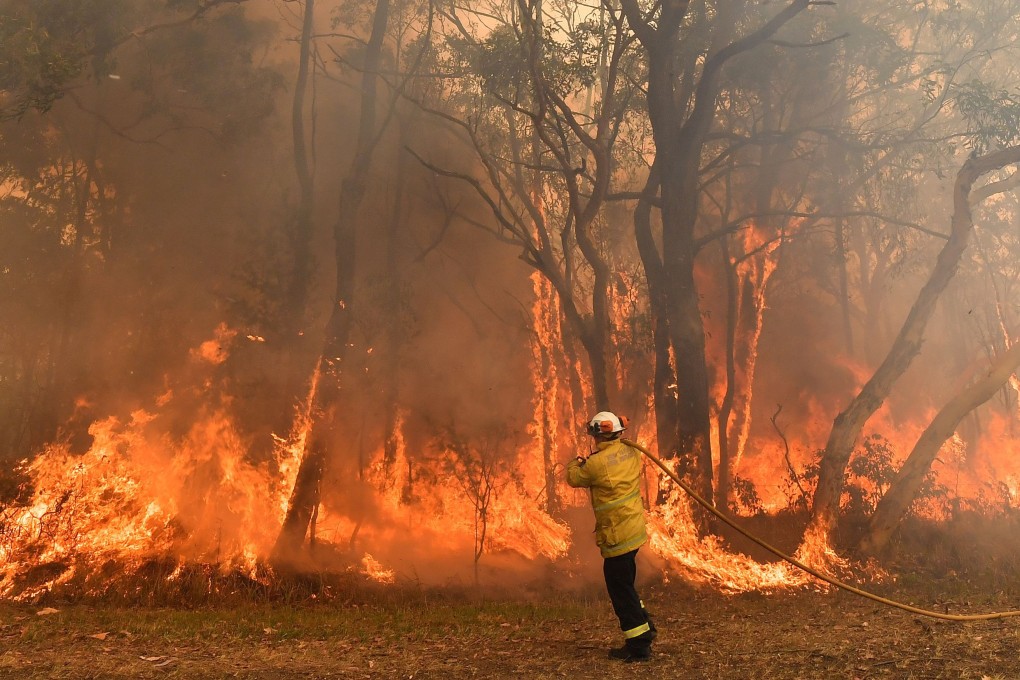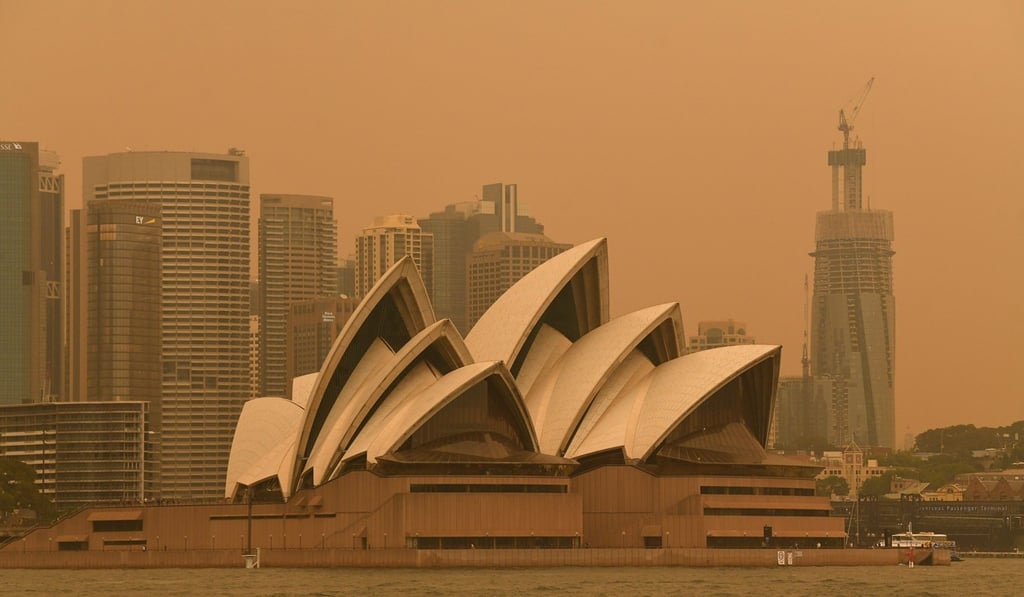Opinion | Australia’s bush fires: the burning issue Scott Morrison refuses to discuss
- Vast swathes of the country on fire, overwhelming firefighters as emergency leaders warn of further catastrophic weather events in future
- But the Morrison administration seems to be too busy tinkering with religious discrimination legislation to countenance any action on climate change

There’s a temptation to describe the whole scene as post-apocalyptic, only there’s nothing post about it. This is happening right now. Six people have died, and close to 700 homes have been lost. Fire alarms are going off inside buildings as smoke worms its way inside. People are gasping and spluttering as they attempt to live out some semblance of normalcy in the gloom, with medical personnel responding to between 70 and 100 cases of respiratory illness every day. Some schools are closed, while others are not letting children outside to protect them from the smoke. And as for the animals – some reports quote experts as saying more than 2,000 koalas have died, with the fires so destructive that their bodies will never be found.

In terms of legislation, Prime Minister Scott Morrison has taken a measured, appropriate response to the situation. In Sydney on Tuesday, while the city choked, he unveiled changes to a religious discrimination bill that will allow religious bodies to discriminate in areas where it is done “in good faith [and] may be reasonably regarded as being in accordance with the doctrines, tenets, beliefs or teachings of their religion”. Rather than consider a federal response to the fires, his focus was on constructing extraordinarily large legislative loopholes in other areas with the potential to cause a great deal of harm.

But let us step away from metaphorical conflagrations and return to literal ones. In Sydney on Tuesday, Morrison also took the time to reject calls for help for the 2,800 or so firefighters in the field. Australia’s rural firefighters are volunteers; as an SBS report points out, this is because when emergency situations arise, there is a need for a surge of extra hands – and for knowledge of local conditions and geography. They are unpaid, but this year’s unprecedented fires mean many have been away from their jobs for weeks. This is not to say they should immediately start receiving a salary for their efforts, although if there’s any time to have a discussion about the matter it would be now – and that’s the crux of the whole situation.
